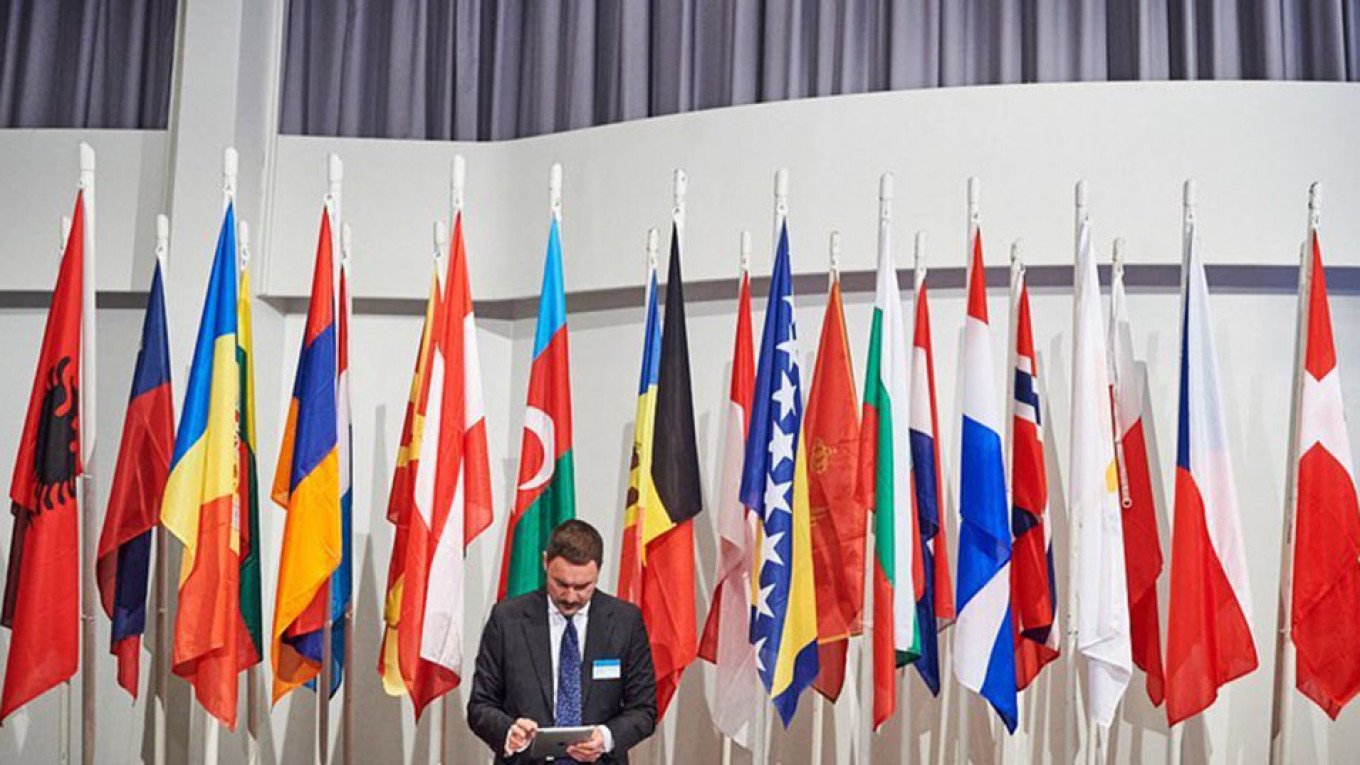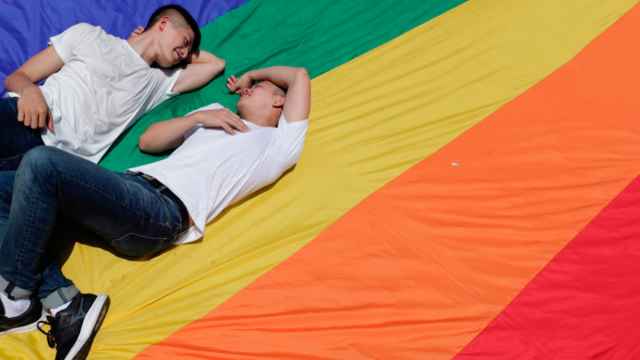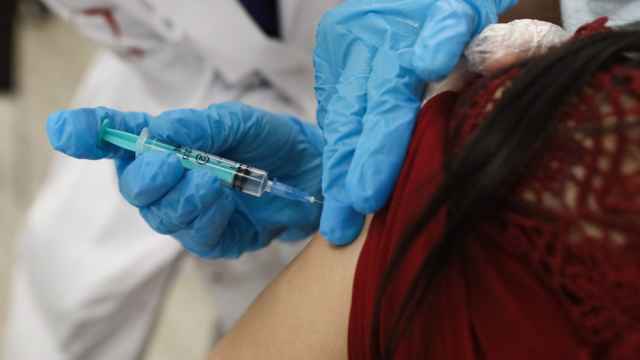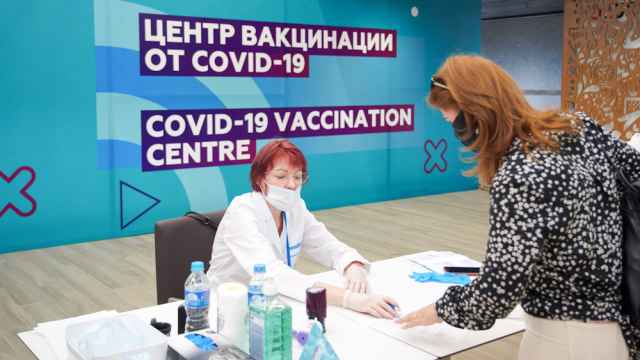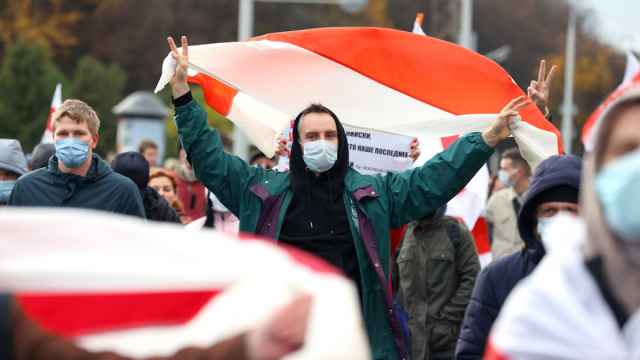After nine hours of heated and intransigent discussion in the Parliamentary Assembly of the Council of Europe (PACE), the body decided to restore Russia’s membership. A total of 118 deputies voted to allow the Russian parliamentary delegation back into PACE, with 62 against and 10 abstentions.
Votes in favour of Russia’s reinstatement came from Germany, France, Italy, Belgium and the Nordic countries. Delegates from the United Kingdom, Ukraine, Georgia and the Baltic states were opposed to Russia returning to Europe’s most prominent rights body.
The vote and accompanying discussion showed that there is a deep rift in the Council of Europe — and in Europe as a whole — on the desirability of Russian participation in European institutions. An equally deep schism on the issue exists among the Russian elites. However, the decision has been made, and it will benefit both parties.
Russia joined the Council of Europe in 1996, and in 1998 Moscow ratified the European Convention for the Protection of Human Rights and Fundamental Freedoms. In doing so, Russia came under the jurisdiction of the European Court of Human Rights (ECHR), giving Russians the opportunity to defend themselves in the highest European legal body for human rights.
In 2018 alone, the total compensation paid out to Russian citizens who won cases in the ECHR came to more than 13 million euros ($15 million). In November 2018, opposition leader Alexei Navalny won a high-profile case against the Kremlin: the court ruled that by placing him under house arrest Russia had violated his rights, and that his detention was politically motivated.
Russia has had more complaints filed against it in the ECHR than any other country — over 12,000 just in the last year. It has the same record for the number of cases won against the state by individuals, with 238 wins and only five losses. Russia dutifully carries out 95 percent of the ECHR’s rulings.
Part of Russia’s ruling elite has long been irritated by these constant defeats in the ECHR, the necessity of paying substantial sums in compensation from the budget for the human rights violations established by the court and the harsh criticism of Russian customs from the Сouncil of Еurope.
Many officials are in favor of quitting the Council of Europe and the Convention on Rights and Freedoms, or of going even further and making a complete break with Western institutions, a self-imposed isolation of the country from European organizations and values.
Just recently, Federation Council Speaker Valentina Matviyenko announced that a decision was “ripening” in Russia on leaving the Сouncil of Еurope. Meanwhile, Constitutional Court Chairman Valery Zorkin has backed a law that allows Russia not to implement the rulings of the ECHR in certain cases.
In general, part of the Russian elite sees membership in the Сouncil of Еurope as an unwelcome legacy of the “wild 1990s,” something that prevents the Kremlin from having complete freedom of movement in both domestic and foreign policy. However, there is another influential part of the Russian elite that realizes leaving the Сouncil of Еurope would be a substantial blow to the national interest.
Along with the Organization for Security and Co-operation in Europe (OSCE), the Council of Europe is the second pan-European international organization in which Russia has a full voice and significant political influence. Losing its place in the Сouncil of Еurope would weaken Russia’s international clout, deepen its foreign policy problems, and increase the country’s isolation. Leaving the Сouncil of Еurope would be a new kind of sanction, albeit one imposed by Russia upon itself.
The Russian Interior Ministry continuously makes statements about the positive role of the Сouncil of Еurope in the fields of international cooperation and domestic reform in Russia. Among other things, this means cooperation on legal reform (including of the penitentiary system), the fight against terrorism and the distribution of drugs, as well as cooperation in sport, culture, bioethics, personal data protection and much more.
Under the Сouncil of Еurope, Russia has ratified and pledged to implement dozens of conventions that have a positive influence on processes taking place inside Russia. Russia’s permanent representative to the Council of Europe, Ivan Saltonovsky, stresses that the body “is an extremely serious platform for dialogue with the participation of the Europeans, and an important part of our work on creating a single European legal and humanitarian space.”
This “should I stay or should I go” dilemma has been resolved by the Russian leadership in favor of “stay.” This means that Russian citizens will preserve the ability to defend their violated rights in the ECHR. It means that a series of reforms to humanize the legal and law enforcement spheres will continue. And it means that cooperation will continue in many areas in the Committee of Ministers of the Council of Europe, the organization’s central institution.
At the same time, Russia will continue to attract harsh criticism over its human rights violations, corrupt legislation, and foreign policy (especially with regard to Ukraine). All these grievances against Russia remain, and may even escalate. The Council of Europe itself faces the very same dilemma, and it has nothing to do with the contributions of over 60 million euros that Russia has not paid into the organization’s budget since 2016, following its decision to cease payments.
The main problem is the perception by opponents of the decision to restore Russia’s membership of PACE that the move is a foreign-policy victory for Moscow, a capitulation by European institutions in the face of the annexation of Crimea and the ongoing war in Eastern Ukraine. Their question is this: in principle, can a country with this kind of foreign policy and an authoritarian system be a member of an organization whose mission is to support peace and cooperation in Europe and human rights and freedoms?
These are issues of principle that will remain on the Council of Europe’s agenda after the return of Russian deputies to Strasbourg. The decision to bring Russia back into PACE, and in doing so preserve its place in the Сouncil of Еurope, was taken with wider strategic perspectives in mind. The Council of Europe and the European Union will not change their principled positions on Crimea and the Donbass, the Minsk Agreements and sanctions or human rights.
But they continue to believe that defending the rights of Russians in the ECHR, the continuous monitoring of the human rights situation, the continuation of work on the implementation of European conventions and ongoing dialogue with Russian politicians in the Committee of Ministers and PACE will make changes in Russian law and foreign policy more likely than if the door to the Council of Europe in Strasbourg had been loudly slammed in Moscow’s face.
For a different take on Russia rejoining PACE, click here for an opinion piece by Steward McDonald.
A Message from The Moscow Times:
Dear readers,
We are facing unprecedented challenges. Russia's Prosecutor General's Office has designated The Moscow Times as an "undesirable" organization, criminalizing our work and putting our staff at risk of prosecution. This follows our earlier unjust labeling as a "foreign agent."
These actions are direct attempts to silence independent journalism in Russia. The authorities claim our work "discredits the decisions of the Russian leadership." We see things differently: we strive to provide accurate, unbiased reporting on Russia.
We, the journalists of The Moscow Times, refuse to be silenced. But to continue our work, we need your help.
Your support, no matter how small, makes a world of difference. If you can, please support us monthly starting from just $2. It's quick to set up, and every contribution makes a significant impact.
By supporting The Moscow Times, you're defending open, independent journalism in the face of repression. Thank you for standing with us.
Remind me later.



